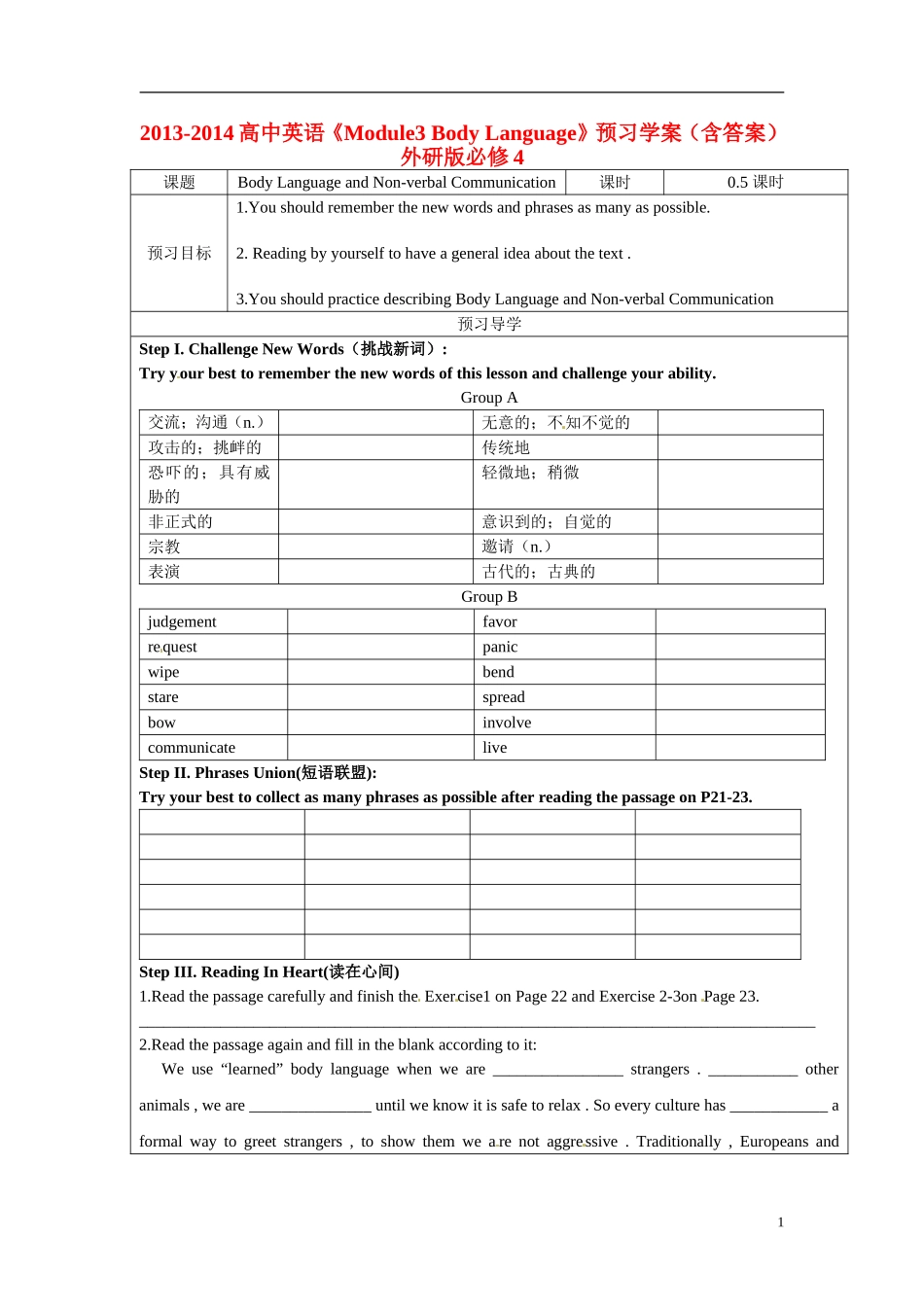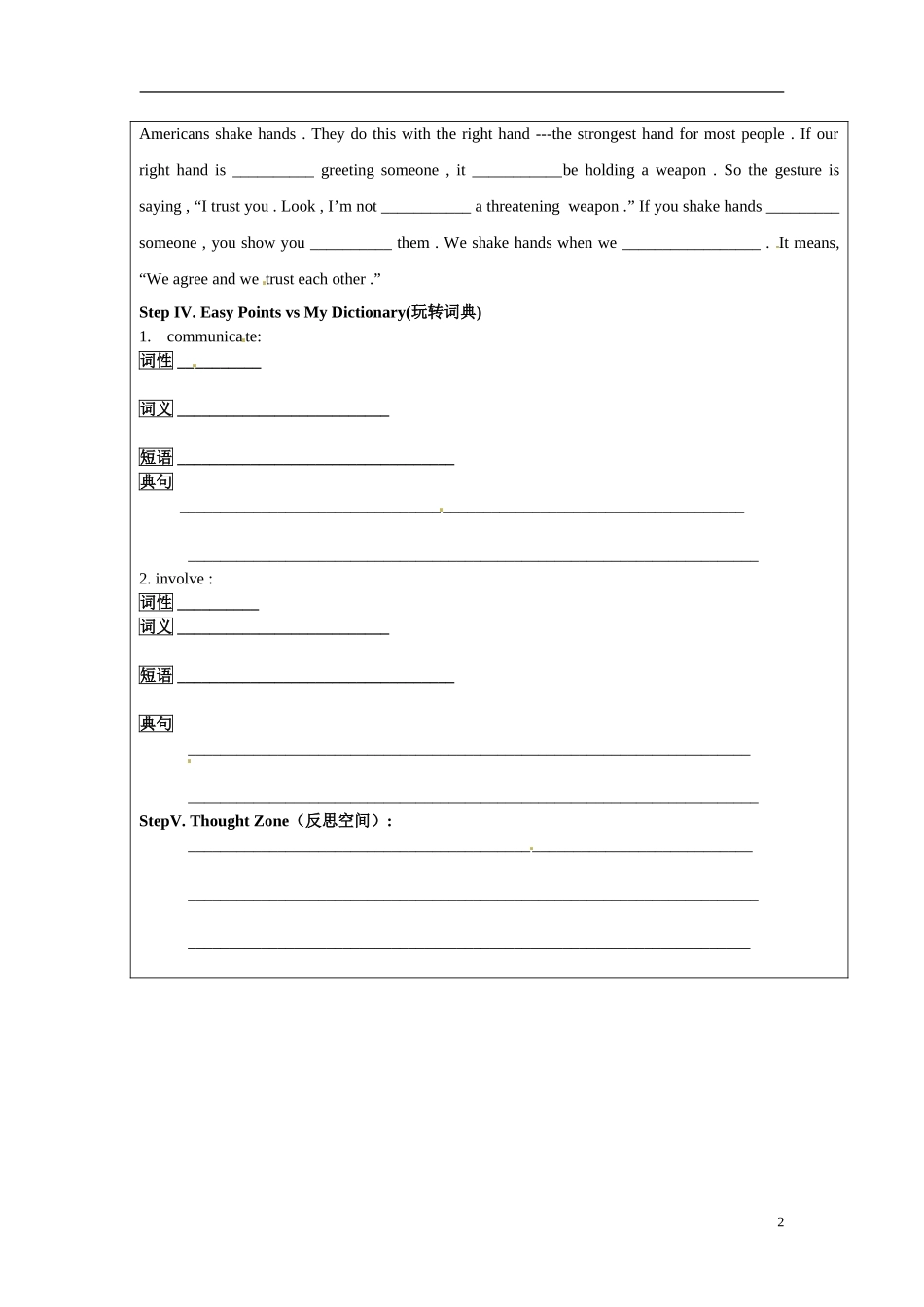2013-2014 高中英语《Module3 Body Language》预习学案(含答案) 外研版必修 4课题Body Language and Non-verbal Communication课时0.5 课时预习目标1.You should remember the new words and phrases as many as possible. 2. Reading by yourself to have a general idea about the text .3.You should practice describing Body Language and Non-verbal Communication预习导学Step I. Challenge New Words(挑战新词):Try your best to remember the new words of this lesson and challenge your ability.Group A交流;沟通(n.)无意的;不知不觉的攻击的;挑衅的传统地恐吓的;具有威胁的轻微地;稍微非正式的意识到的;自觉的宗教邀请(n.)表演古代的;古典的Group BjudgementfavorrequestpanicwipebendstarespreadbowinvolvecommunicateliveStep II. Phrases Union(短语联盟):Try your best to collect as many phrases as possible after reading the passage on P21-23.Step III. Reading In Heart(读在心间)1.Read the passage carefully and finish the Exercise1 on Page 22 and Exercise 2-3on Page 23.___________________________________________________________________________________2.Read the passage again and fill in the blank according to it: We use “learned” body language when we are ________________ strangers . ___________ other animals , we are _______________ until we know it is safe to relax . So every culture has ____________ a formal way to greet strangers , to show them we a re not aggressive . Traditionally , Europeans and 1Americans shake hands . They do this with the right hand ---the strongest hand for most people . If our right hand is __________ greeting someone , it ___________be holding a weapon . So the gesture is saying , “I trust you . Look , I’m not ___________ a threatening weapon .” If you shake hands _________ someone , you show you __________ them . We shake hands when we _________________ . It means, “We agree and we trust each other .”Step IV. Easy Points vs My Dictionary(玩转词典)1.communicate:词性 __________ 词义 __________________________短语 __________________________________典句 ___________________________________________________________________________________________________________________________________________2. involve :词性 __________ 词义 __________________________短语 __________________________________典句 ___________________________________________________________________________________________________________________________________________StepV. Thought Zone(反思空间):________________________________________________________________________________________________________________________________________________________________________________________________________________2

